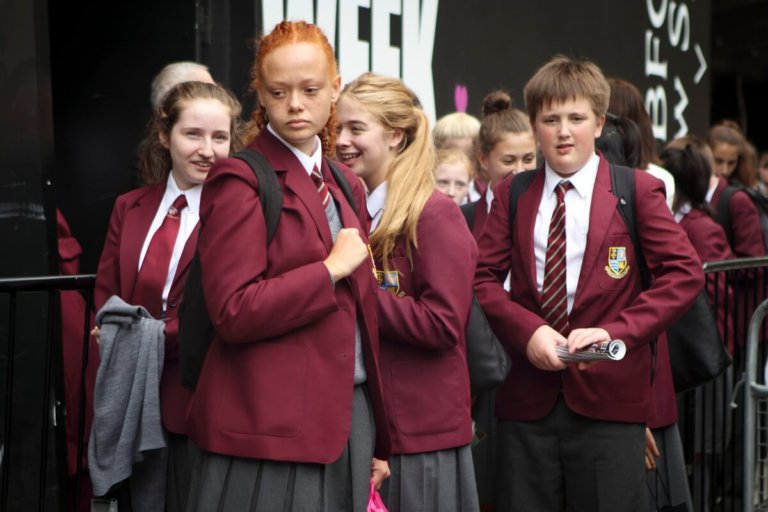
Last year, slang words including “whatevs,” “simples,” “chillax,” “sumfin,” and “Jafaican” were added to the Oxford English Dictionary. The year before that, “hangry” were among the words that made it into the Merriam-Webster Dictionary.
What these examples show is that the English language is in a constant state of flux, constantly evolving with the times. Despite that, the policing of non-standardised English use in UK schools has been on the rise in recent years.
In a report published in the journal Language in Society, Dr Ian Cushing, linguistics expert at Brunel University, said there’s a growing trend for headteachers to enforce strict language policies.
Language policing can be in oral or written forms.
He said the link between language, employment, academic success and economy was a key part of the language policy imposed by schools, despite students being many years away from applying for jobs or attending a job interview.
Speaking to The Telegraph, Dr Cushing said: “Banning language and non-standard grammar is a punitive practice which can make people feel stigmatised, discriminated against and that their language is worthless.
“I think some adults feel threatened by how kids speak, but kids having their own language is a big part of how they form identities and interact with different social groups.”
He explained that “there’s nothing incorrect or wrong about non-standard language,” adding that students could be adversely affected if they are not allowed to use slang words and deterred from making contributions in class if they are told off for how they speak.
Banning slang words doesn’t necessarily improve students’ speech

Schools gripe about students’ use of slang words. Source: Shutterstock
While standard English is important for job interviews or ceremonies, it’s not necessary on a daily basis. Children are also good at switching between informal and formal speech depending on context, said Dr Cushing.
“They don’t need to have their language policed, they police it themselves. I am not suggesting students shouldn’t have access to Standard English, but they need to be taught why it carries social power and that using non-standard English is not ‘incorrect,’ ‘wrong’ or ‘inappropriate’,” he was quoted saying.
Back in 2016, Rob Drummond, Senior Lecturer in Linguistics, Manchester Metropolitan University wrote in The Conversation that slang words shouldn’t be banned.
“Indeed, banning slang in schools is a short-sighted and inefficient way of trying to produce young people who are confident and adaptable communicators. What we should be doing is encouraging students to explore the fluidity, richness, and contextual appropriateness of an ever-changing language,” he said.
Drummond said there is no such thing as “proper English”, adding that “there is simply English that is more or less appropriate in a given situation”.
“Most of us would agree that ‘well jel’ (very jealous) or ‘innit’ have no place in most job interviews, but they do have a place elsewhere. Similarly, some people might get annoyed at what they see as the overuse of ‘like,’ but it’s as much a part of young people’s language as ‘cool,’ ‘yeah’ or ‘dude might have been to their parents in their day,” he said.
Liked this? Then you’ll love…
Hard work alone does not lead to student success. Here’s why.
Why media literacy is more important than ever for today’s youth







